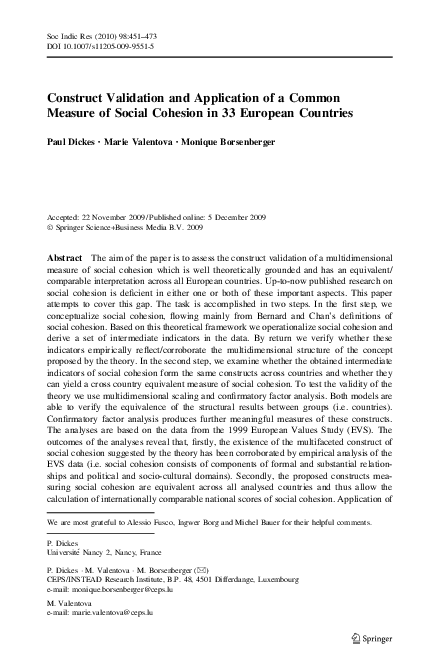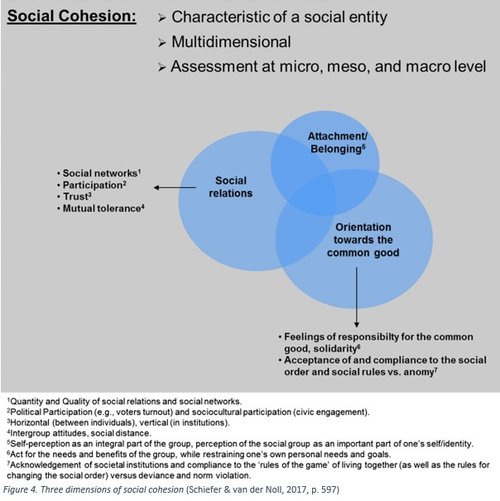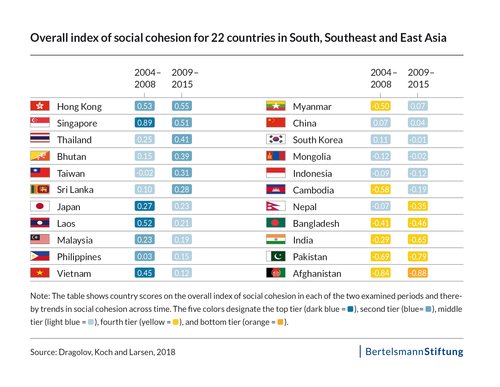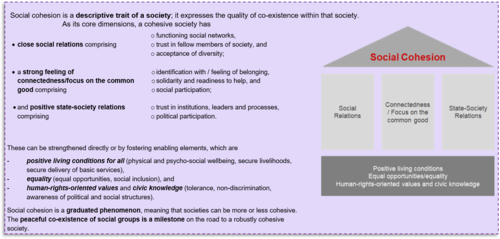Construct Validation and Application of a Common Measure of Social Cohesion in 33 European Countries
Key facts
Identity/feeling of belonging
Equality/Inequality
Solidarity
Shared values
Tolerance
Summary
The aim of the paper is to assess the construct validation of a multidimensional measure of social cohesion which is well theoretically grounded and has an equivalent/ comparable interpretation across all European countries. Up-to-now published research on social cohesion is deficient in either one or both of these important aspects. This paper attempts to cover this gap. The task is accomplished in two steps. In the first step, we conceptualize social cohesion, flowing mainly from Bernard and Chan’s definitions of social cohesion. Based on this theoretical framework we operationalize social cohesion and derive a set of intermediate indicators in the data. By return we verify whether these indicators empirically reflect/corroborate the multidimensional structure of the concept proposed by the theory. In the second step, we examine whether the obtained intermediate indicators of social cohesion form the same constructs across countries and whether they can yield a cross country equivalent measure of social cohesion. To test the validity of the theory we use multidimensional scaling and confirmatory factor analysis. Both models are able to verify the equivalence of the structural results between groups (i.e. countries). Confirmatory factor analysis produces further meaningful measures of these constructs. The analyses are based on the data from the 1999 European Values Study (EVS). The outcomes of the analyses reveal that, firstly, the existence of the multifaceted construct of social cohesion suggested by the theory has been corroborated by empirical analysis of the EVS data (i.e. social cohesion consists of components of formal and substantial relation- ships and political and socio-cultural domains). Secondly, the proposed constructs mea- suring social cohesion are equivalent across all analysed countries and thus allow the calculation of internationally comparable national scores of social cohesion. Application of the aggregate measures at the country level will illustrate the interest of the approach for further research.

Explore the hub further




